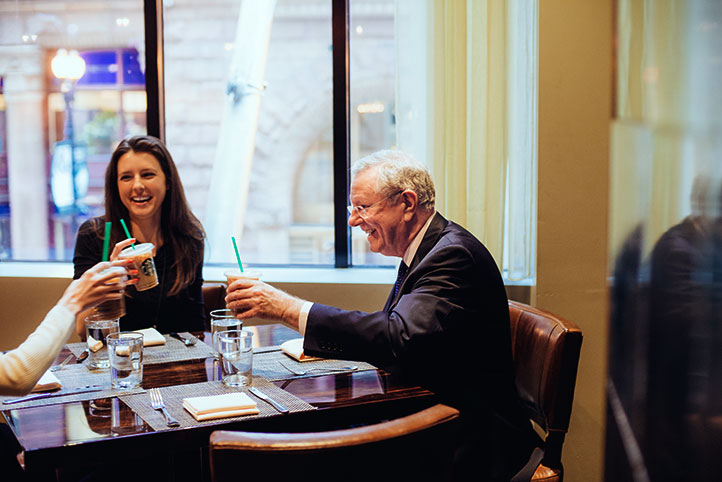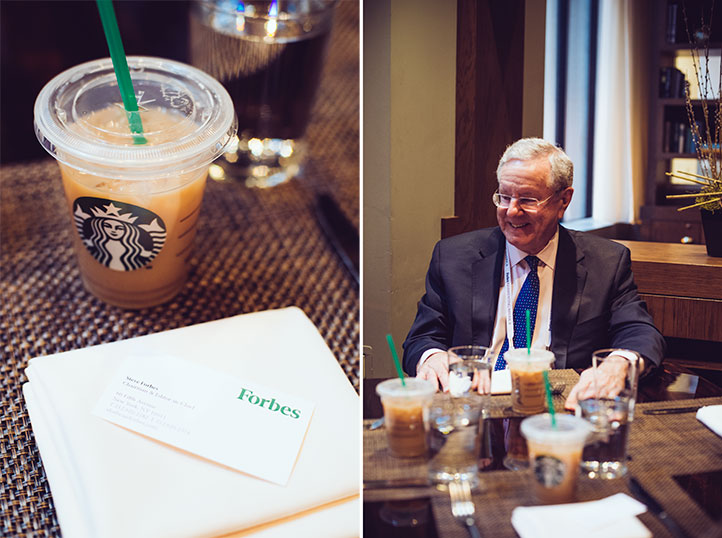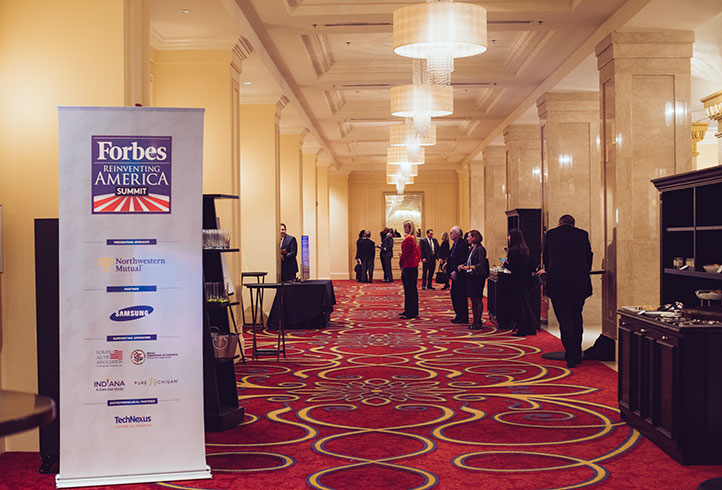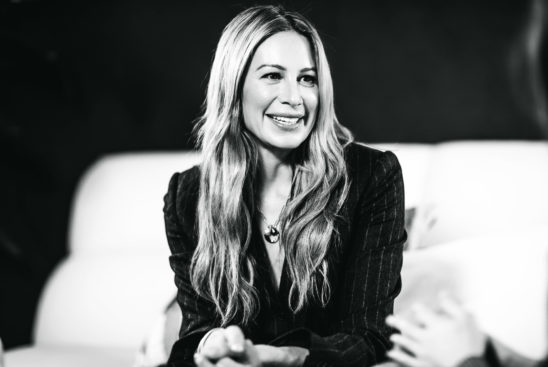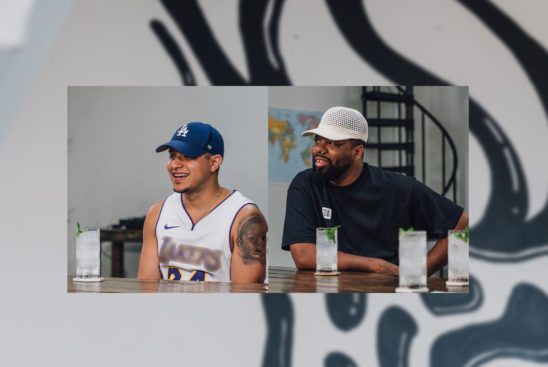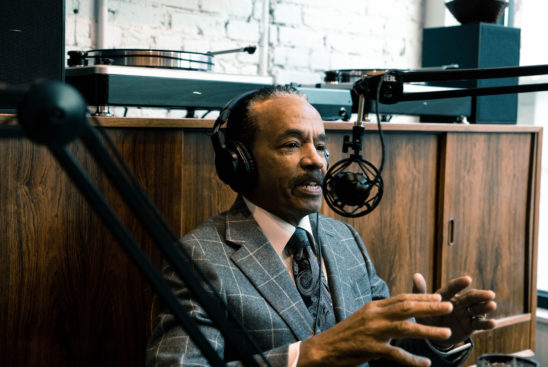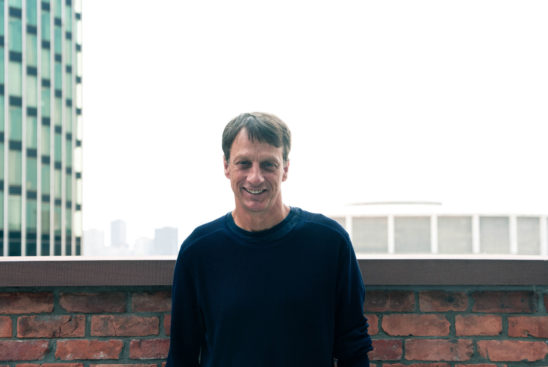The internet boom was game-changing for publishers. How challenging was it to maneuver such a dramatic industry innovation?
One of the things you always have to remind and ask yourself in business is, “What is your purpose? What is it you’re trying to do?” If you focus on what it is you’re trying to do that will help you avoid the trap of getting caught up in how you’ve done things before. The late great management guru Peter Drucker emphasized that. When the internet started to emerge in the ’90s we fortunately made the decision to treat [our digital content] as a separate business. We put it in a separate building with separate staff and a separate supporting administrative structure because the tendency for incumbent companies is to use any new thing for the immediate purposes of what you’re doing now and that’s not out of malice it’s just the human nature.
Did you ever feel afraid of the unknown?
Whenever you do a new thing you’re going to have periods of intense anxiety precisely because there is no rulebook. You’re making it up and having to innovate as you go along. The old phrase applies here and that is, “You can eat well or sleep well but not both.”
Why do you think it has taken so long for so many outlets to embrace the movement to digital?
In the mid ’90s a lot of the publishers initially thought electronic publishing was like when movies were invented over 100 years ago by Thomas Edison; the thought was you could make a feature film just by filming a stage play. Simply throwing a printed page online did not mean you were in electronic publishing, it was a completely separate medium so we didn’t make the mistake a lot of our peers made. It has totally destroyed the old model of how our industry worked, which goes back to the 1830s. It’s a whole new era and by reminding ourselves what our purpose is I think we went through the very, very painful transition to a new era and most of our peers have not. In the days of print the magazine would publish 1,400 articles a year and we still do but now online we post about 120,000 a year. We have over 1,200 contracted contributors. We’ve changed content creation, it’s a whole different era.
How do you deal with stress?
You go to work and try to move ahead. People have their own ways of dealing with anxieties, worries and challenges. It’s certainly good for the food industry late at night, especially pizza, but there’s no one way to do it. Some do it through furious exercising but you have to find your own way. Now everyone applauds entrepreneurs and innovation. A great Austrian economist, [Joseph] Schumpeter, called it creative destruction. The creative part is nice, the destruction part is not. In this kind of change if you want to go in the center of it you have to ask yourself, “Do you really have the personality to do it?” and some people do and some people don’t but usually you’re not going to discover it until you’re in the midst of it and then you have to see it through. If you want to lead a nice gentle balanced life, don’t do this [career]!
What is your favorite part of the day?
Going to bed! No, there’s no favorite part. It’s getting a task done, getting a piece written. That always gives you a brief good feeling—until you start to read the comments online. In the kind of business we’re in there is not much of a routine, just deadlines and things to be done but it’s always fun to get a nice big iced latte. I love iced lattes, even in the winter. I’m sure at some point I’m going to be told to cut down on the caffeine but until I’m told, I’m not going to!
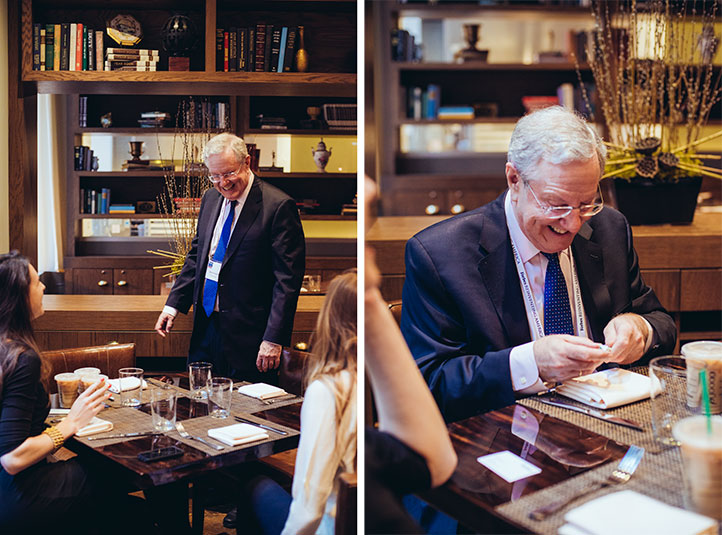
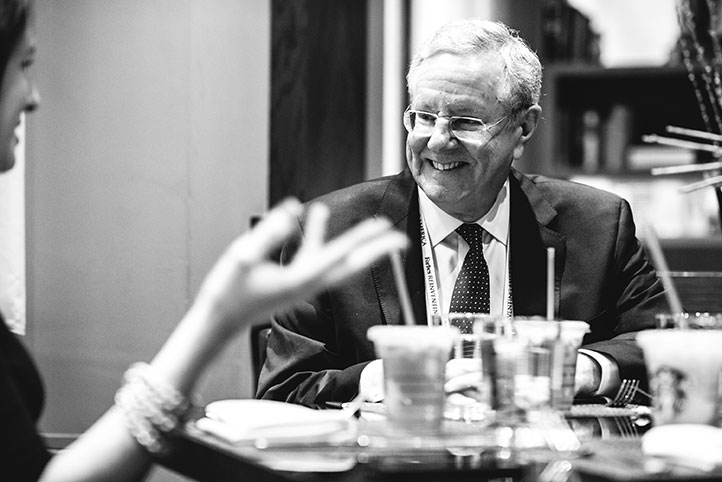

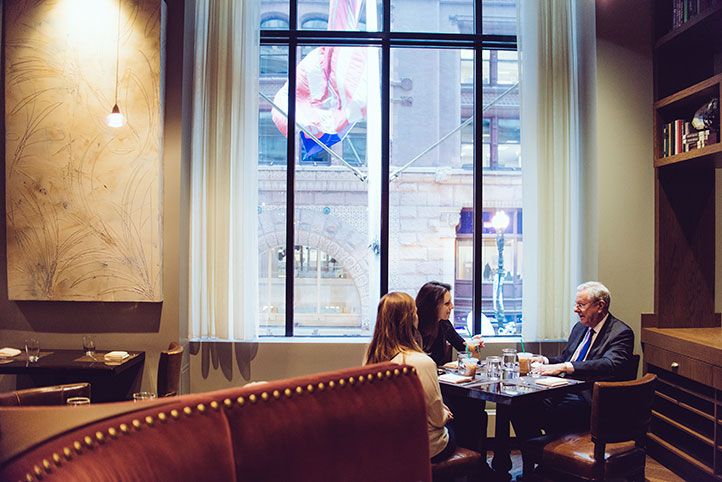
When Forbes Media was passed down to you from your father and grandfather, what was the most important piece of business advice they instilled in you?
I think it can be boiled down to cash flow. Watch the cash flow. You can have great ideas, great models and great people but you’ll get destroyed because you didn’t stay on top of the fuel which is money. We grew up with stories of how our grandfather, who started the company, went through heroing difficult periods during the Great Depression. He was an immigrant to this country from Scotland with a grade school education so in the ’20s his new company was a great success and then it was nearly destroyed by the Depression. My father would work there during the summers and each day my grandfather would come down to see the bookkeeper and during the Depression the news each day was usually grim. One day the bookkeeper said to my grandfather, “Mr. Forbes, I have good news for you. We made a profit this month.” My grandfather just looked at him and said, “Young man, I don’t give a damn what your books show. How much money do we have in the bank?” The other thing is a truism when you’re going through innovation and that is to remind yourself that you can learn from failure. Knowledge comes not just from success but also from what didn’t work.
When have you felt like you failed?
Well, I ran for president twice and learned that it’s more fun to win than to lose. It was a great experience but that attempt to make a mid-life career change did not work out.
Which part of the process of the presidential campaign did you feel unprepared for?
You knew it was going to be a rough process and you knew how diverse the country is but you really don’t feel those things until you experience them. It’s amazing just how diverse the country is and I don’t mean in a PC sense but in people having very different interests. You see it in the Republican Party; Iowa Republicans care more about social issues than economic issues but then you go to New Hampshire which is the same party and they couldn’t give a hoot. This is a generalization but generally [New Hampshire Republicans] really couldn’t care less about social issues but they do care about taxes, as long as you leave their taxes alone and don’t take their guns they’re fine but issues like abortion are low on their totem pole of concerns. Iowa is just the opposite but the same party. You see that all of the time around the country. It’s very, very diverse country in terms of interests.
How did the experience change your view on politics?
Politics is politics but I think that you gain an appreciation for the strength of this country, which is much better and much stronger than some of our reality shows or other superficial junk out there would lead you to believe.
What led you to want to get influencers such as Bill Ford, Mayor Rahm Emanuel and Sam Zell together for the first Forbes Reinventing America Summit?
I think what technology underscores is that even traditional industries can be radically changed. We think of technology as inventing whole new industries or products like the iPod or iPad but it changes existing industries as well. Thanks to a man named George Mitchell in Texas who almost single-handedly pushed the invention of hydraulic fracturing, or getting gas out of shale, we are seeing energy shortages turned into abundances and now making energy very cheap. What’s happened with natural gas and secondarily with oil is that a component that was previously a very high cost now is going to become cheaper and more and more abundant. This means you can apply money to other things including innovation but it changes the economics of various sectors of already existing manufacturing enormously. You see it in the chemical industry; companies are now starting to move back to the United States so that was the big one. You note other technological changes in companies like Walmart, Ford, Honeywell and others and this thing is just beginning.
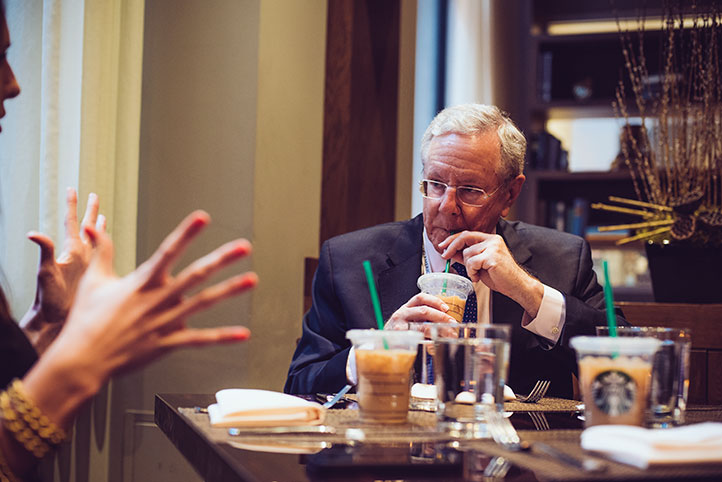
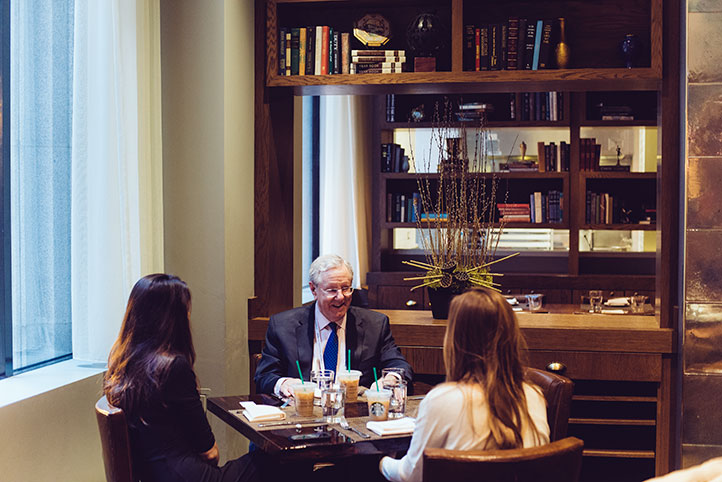
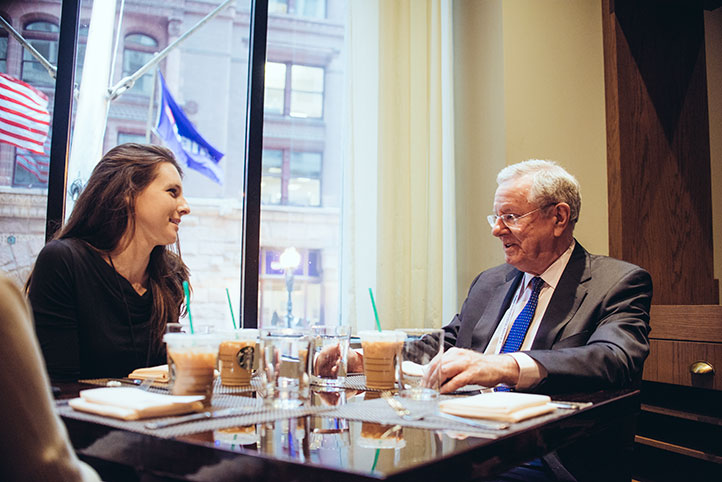
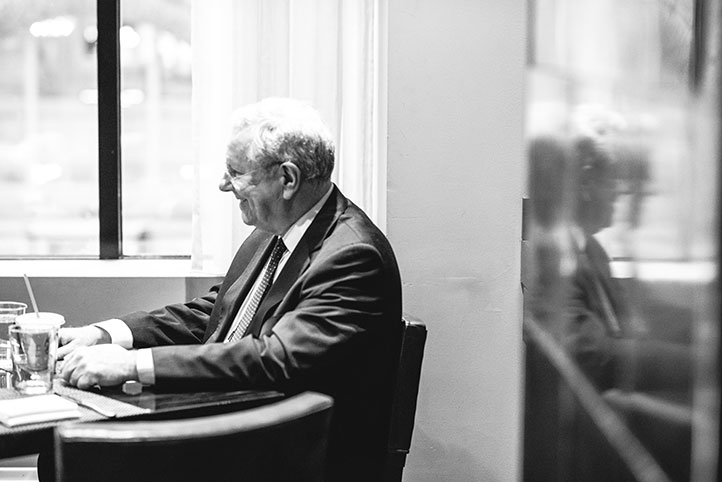
To make this event a success who did you have to get on board? Who was the first phone call?
We thought it would be appropriate to do it in Chicago because it is the center of the country. Even though manufacturing is everywhere in the U.S. the Midwest traditionally has been seen as the center of manufacturing. We thought it would be a good idea to see if we could involve Mayor Rahm Emanuel because when you’re a mayor and have to get real things done ideology kind of moves to the side, you either get it done or you don’t. A speech isn’t going to do it for you. After getting him on board others came on board so it’s filled out very well.
Have you spent much time with Mayor Emanuel?
No but I’ve met him several times. We were on CNBC’s “Squawk Box” and it was fun getting us, two people on opposite sides, to appear on the same program and be civil and agree with one another.
Born into the Forbes family, how do you make sure to pass along a good work ethic to your children?
My father would take my brothers, my sister and I to various business functions and the purpose was to understand that business is a constant thing. It’s not something you succeed at and then rest on your oars, you have to work at it all of the time. It just doesn’t happen, you make it happen. So we were expected to go to these things, learn as we got older who was there and why they were there and to help out. We have five daughters and we tried to do that with our kids, not so they would necessarily go into the business but so they at least have an understanding of what it takes to make things happen.
What is something you learned in year 40 of marriage that was different from the 30-year mark?
You learn from the beginning to just say yes. “Will you do this?”, “Yes.”
One recent entrepreneur that stood out as someone you enjoyed learning more about?
This is a historical one but it came up when I was doing some research. I’m reading a book on Henry Ford and how he went through two major bankruptcies and almost a third before he succeeded. Again learning from failure and what others have done before is very crucial.
As a baseball fan, if you could trade places with a player for a day who would it be?
Derek Jeter.
Go-to pizza topping?
All of the ones that are bad. Mostly sausage, pepperoni and hot pepper.
What do you like to do for fun?
I like bicycling. For exercise I’ll do the stationary and other times during the year I like to do bike trips with companies like Backroads [Bike Tours], VBT and Butterfield and Robinson in various parts of the world.
You could check out Chicago’s Divvy bikes while in town.
I think I’m going to be too busy! Your former mayor, Mayor Daley, used to like to ride bicycles. New York has those now too but I think riding a bike in New York is nuts unless you’re making deliveries. I think the inspiration for those in the U.S. came out of London several years ago. They had a mayor there named Boris Johnson, a very colorful figure, and in London they call them Boris bikes.
If you could have a drink with anyone, who would it be?
Aside from you guys? The problem is Jesus didn’t drink and Lincoln didn’t drink.
It can be non-alcoholic.
Alright, well we’ll have orange juice. I think Jesus would be interesting to say the least and then with Lincoln, at the very least you would get great stories from him.
Did you enjoy this feature? Subscribe to our newsletter and never miss a drink, we promise we’ll never spam you!

